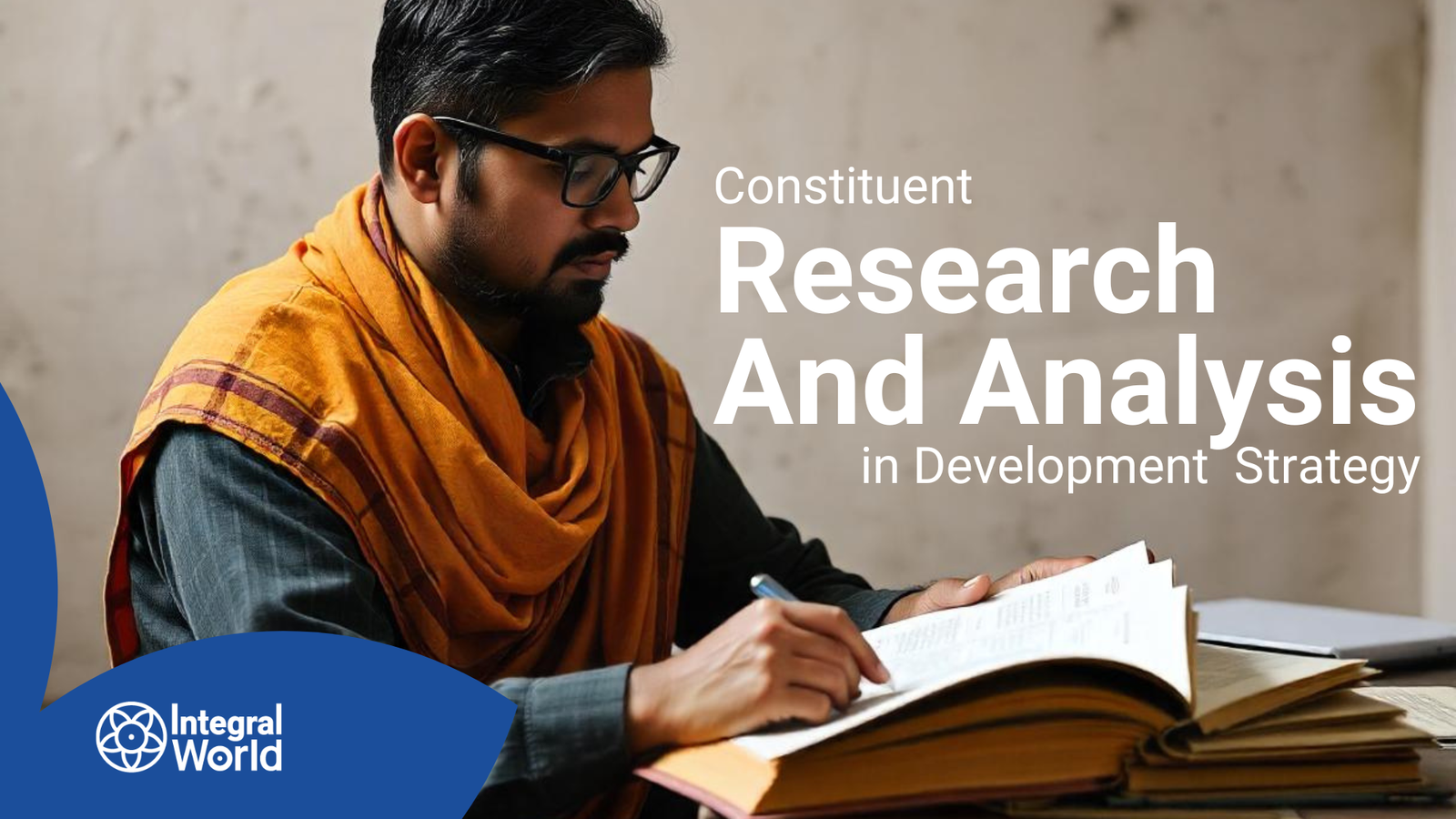It is necessary to grasp the needs, preferences and behaviour of constituents for development strategies to move forward effectively and sustainably. Constituent-related research and analysis guide strategic decision-making, offering unique insights, optimizing resource allocation, and enhancing program outcomes. By utilising this kind of research organisations change their game towards empowering communities while achieving real results. This article highlights the importance of constituent-related research and analysis in shaping development strategies as well as how strategic workshops and training programs can further amplify these efforts.
The Significance of Constituent-Related Research and Analysis
Constituent-related research involves gathering information about communities or individuals that an organisation serves and interpreting it. Such research may have several aspects including demographic profile, needs assessment, preferences as well as feedback received from them. Organisations gain knowledge on these factors for tackling real issues related to their development planning thus making more impact.
Main Benefits of Constituent-Related Research and Analysis
Informed Decision-Making: The basis for making informed decisions is laid through research. Organizations efficiently identify priority areas, allocate resources rationally, and develop programs that respect client interests, reducing guesswork and boosting the chances of achieving desired results
Enhanced Program Design: Programs designed by organisations become more relevant due to feedback given by constituents who say their thoughts concerning initiatives they take part in. Inclusion of community input into program development ensures practicality, effectiveness and acceptability among others in design interventions.
Increased Accountability: Transparent evidence-based decision making improves accountability within an organisation when constituents see that their inputs were valued and thus trusting such institutions even more actively supporting them. This fosters trust leading to increased engagement as well as support for developmental initiatives.
Improved Stakeholder Engagement: Motivations plus concerns of stakeholders are understood better through research. Such comprehension helps in more meaningful engagement and collaboration among community members, donors and other partners.

Driving Development Progress through Strategic Workshops and Training Programs
Strategic workshops and training programs play a critical role in harnessing constituent-related research for development progress. These programs equip organizations with the skills to analyze data, apply research to planning, and implement impactful, strategic initiatives.
Strategic Workshops:
Purpose: The purpose of strategic workshops is to bring together key stakeholders including staff, community members, experts etc., to jointly develop or refine development strategies. These forums actively share insights, brainstorm solutions, and align goals to drive meaningful progress and impactful results.
Benefits:
Collaborative Planning: Workshops foster collaboration and diverse perspectives, leading to more comprehensive and innovative strategies.
Skill Development: Participants gain valuable skills in data analysis, strategic planning, and program design.
Actionable Outcomes: Workshops often result in actionable plans and clear next steps driving progress toward development goals.
TRAINING PROGRAMMES:
Purpose: It is an opportunity for training programs to focus on a range of relevant issues ranging from data analysis, research approaches and strategic planning. These equip organizations with the skills to conduct meaningful constituent research and apply insights effectively in their strategic planning.
Benefits:
Increased Capacities: This is because all such training courses are designed to boost a firm’s capacity in terms of staff competence in research work, analytical skills as well as formulation of strategies.
Data-Driven Decision-Making: This involves interpreting information and facts, determining what’s happening over time and making learned choices based on evidence obtained from studies.
Continual Improvement: Organisations can remain flexible to the changing needs of communities as they continuously learn and adapt through using training programs.
Actionable Tips for Leveraging Constituent-Related Research
Engage in Continuous Dialogue: Always have a conversation with your constituents to gather real-time feedback and insights. Use surveys, focus groups, and interviews to regularly engage community members in order to understand their needs and preferences.
Utilise Data Analytics Tools: Employ data analytics tools and technologies that can help analyse research findings. These tools help identify trends over time, track progress, and provide valuable insights into current developments and outcomes
Incorporate Feedback into Strategy: Use your findings from such studies as an input for refining development strategies. Incorporate the feedback from the public into program design, implementation as well as evaluation processes.
Foster a Culture of Learning: Encourage continuous learning within your organisation. This may involve staff training programs that help enhance one’s competencies in research, analysis and strategic planning among others.
Measure and Evaluate Impact: Regularly measure up how much positive change has been brought about by these initiatives supported by corresponding evidence collected analytically. Use this data to demonstrate results, identify gaps, and impress external stakeholders by showcasing the relevance of your work
Conclusion
Constituent-related research is instrumental in shaping development strategies. By designing programs based on the needs and desires of communities they serve, organisations become agents of meaningful sustainable change. Strategic workshops together with training courses reinforce all these efforts through building capacities fostering collaborative decision making thus being able to make data-driven decisions.
Integral World actively supports organizations in leveraging research and analysis to achieve their development objectives. Our proficiency in strategy formations, enhancing competencies and community mobilisation makes us a valuable partner in facilitating a purposeful change.
To discuss our strategic workshops and training programs that aid in conducting stakeholders’ research for goal achievement, contact Integral World today. For a more meaningful future that would last long, let’s make the agenda together now.

